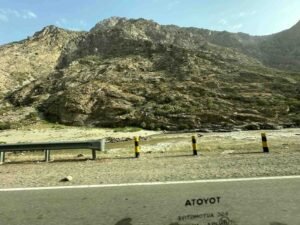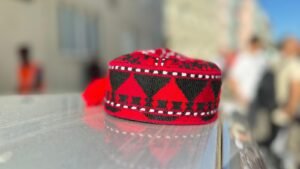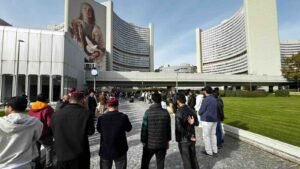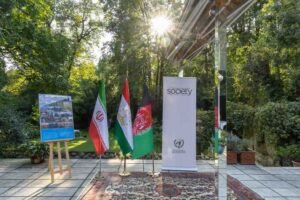Massoud Pezeshkian: Predicting a Reformist Victory in the Upcoming Iranian Presidential Elections

By Anant Mishra and Christian Kaunert
Taking note of outcomes from the previous presidential elections in Iran (and comparing it general predictions), it will not be incorrect to mention their tendency to surprise (not just the victors) the electorates, forcing even the top western psephologists to predict Massoud Pezeshkian’s victory (a reformist candidate) and not rule him out. The last four presidential elections surprised everyone as the outcome shattered roughly all predictions made before the campaign began. Similar to previous presidential race, the upcoming presidential elections scheduled to be held two days from now, may surprise yet again.
Out of six presidential candidates, five are hardliners and intimately close to the Islamic Revolutionary Guard Corps (IRGC). That being so, the Supreme Leader has denied victory to any presidential candidate with significant ties to the IRGC. As a matter of fact, victors in the last three presidential elections had poor ties to the Guards Corps (with Mahmoud Ahmadinejad criticising IRGC of corruption in a televised debate and Mohammad Khatami receiving a warning from one of the commanders of the IRGC, calling for harsher actions against the protesters). That said, the then President elect Hassan Rouhani won comfortably against many IRGC favoured candidates. One may argue, the late President Ebrahim Raisi enjoyed favourable relations with the IRGC (with many respecting him in the ranks of the Guards) yet he did not serve in the Guard Corps.
According to one expert, the Supreme Leader’s intent to keep the Guard Corps outside the presidential race is strictly to deny emergence of any influential candidate while consolidating power to select few. During the authors interview, a political leader who served in the presidency of Mahmoud Ahmadinejad stated the Supreme Leader’s decision to deny any talk of his successor, which continues to be speculated in the western media. Additionally, by his decree many institutions were formed with roles/responsibilities intertwined between them. He then deputed influential leaders in shadowy appointments (in such institutions), making them responsible for such institutional functioning.
This makes Massoud Pezeshkian’s candidacy in the upcoming presidential elections, very distinct. Unlike other candidates, his rise to power was neither though family’s influence or by ways of corruption. His distinguished career in Iranian politics is supplemented by a personal tragedy which distinguishes him from other candidates. He has the potency to influence votes from the followers of even the most populist leaders including Mahmoud Ahmadinejad, by simple Persian dialect and his strong stance towards corruption. Yet, Pezeshkian’s victory may still be far from achieving. According to one expert, he lacks clarity particularly on policies for running Iran, and remains unclear on Tehran’s Foreign Policy, where he deflects to the guidance of the Ayatollah. That said, he openly refers to the Ayatollah has the exalted supreme leader, which is common among the traditional conservatives and regime loyalists at best, making him distinct even within the reformist camp. Although, Massoud Pezeshkian’s absolute loyalty to the Ayatollah may have given an entry in the upcoming presidential race, but his lack of clarity on the current trajectory of Tehran’s foreign policy may not appease electorates, especially the youth studying in universities hoping for a change.
Pezeshkian has the full support from the reformist/moderates camp, including former President Mohammad Khatami, which could quantify his votes. Key political leaders from the moderate camps have put their weight behind Pezeshkian’s victory in the upcoming presidential election. Gifted with a voice for Persian with simplicity, he is expected to sway votes of ethnic minorities particularly Azeris, proving vital in Pezeshkian’s presidential campaign. This would mean Azeris in large numbers (who are a majority in Ardabil, Zanjan and East & West Azerbaijan) coming out to vote for Pezeshkian.
Hypothetically between Qalibaf or Jalili, if either of two win in the upcoming presidential race, the Supreme Leader could do the unthinkable—something extraordinary and out of pattern even for the Ayatollah. From the previous three presidential race it is clear that the Supreme Leader prefers a candidate who is modest rather restrain in his policies, may not necessarily be technocrat or a traditional reformist with a political career bult on carrying everyone (maintaining unity in the Iranian political system), an ideal candidate, which in the upcoming presidential election is Massoud Pezeshkian. If the pattern continues (reflecting from the late President Raisi’s victory) – where the President is largely nominal in decision making—the Supreme Leader may counsel either Jalili or Qalibaf to stand down, opening the door of presidency for Pezeshkian.
Anant Mishra is a visiting fellow at the International Centre for Policing and Security, University of South Wales.
Christian Kaunert is Professor of International Security at Dublin City University, and Professor of Policing and Security at the University of South Wales.
Note: The contents of the article are of sole responsibility of the author. Afghan Diaspora Network will not be responsible for any inaccurate or incorrect statement in the articles.





